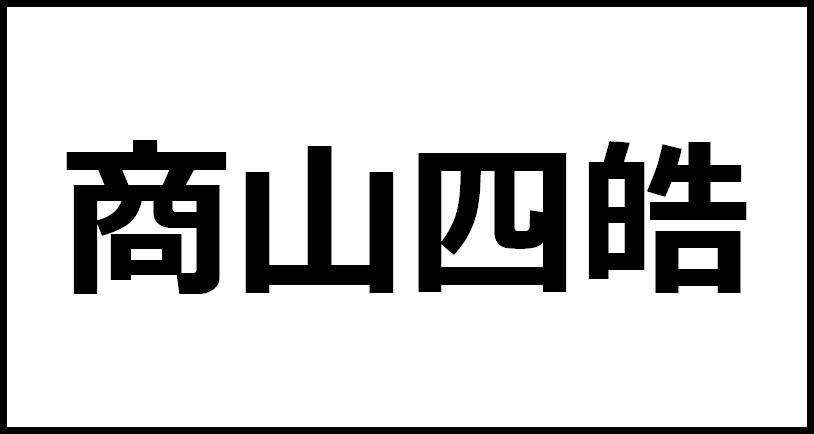商山四皓について。四字熟語の商山四皓の読み方や意味、英語や外国語での意味をまとめました。
商山四皓について
商山四皓の読み方・意味
| 四字熟語 | 商山四皓 |
| 読み方 | しょうざんのしこう |
| カタカナ読み | ショウザンノシコウ |
| ローマ字読み | shozannoshiko |
| 読みの文字数 | 9文字読みの四字熟語 |
| 頭文字 | 「し」から始まる四字熟語 |
| 構成する文字 | ・商 ・四 ・山 ・皓 |
| 意味 | 中国秦代末期、乱世を避けて陝西(せんせい)省商山に入った東園公・綺里季・夏黄公・甪里(ろくり)先生の四人の隠士。みな鬚眉(しゅび)が皓白(こうはく)の老人であったのでいう。画題とされる。 |
商山四皓の意味(外国語)
商山四皓の外国語での意味をまとめました。
| 英語 | At the end of the Qin dynasty in China, four hermits, Dongyuankou, Kiriki, Xiahuangkou, and Rokuri sensei, escaped from the turbulent times and entered Shangshan, Shaanxi Province. It is said that they were all old men with white beards. It is the subject of the painting. |
| スペイン語 | Al final de la dinastía Qin en China, cuatro ermitaños, Dongyuankou, Kiriki, Xiahuangkou y Rokuri sensei, escaparon de los tiempos turbulentos y entraron en Shangshan, provincia de Shaanxi. Se dice que eran todos ancianos de barba blanca. Es el tema de la pintura. |
| イタリア語 | Alla fine della dinastia Qin in Cina, quattro eremiti, Dongyuankou, Kiriki, Xiahuangkou e Rokuri sensei, fuggirono dai tempi turbolenti ed entrarono a Shangshan, nella provincia dello Shaanxi. Si dice che fossero tutti vecchi con la barba bianca. È il soggetto del dipinto. |
| ポルトガル語 | No final da dinastia Qin na China, quatro eremitas, Dongyuankou, Kiriki, Xiahuangkou e Rokuri sensei, escaparam dos tempos turbulentos e entraram em Shangshan, província de Shaanxi. Diz-se que eram todos velhos com barbas brancas. É o tema da pintura. |
| フランス語 | Alla fine della dinastia Qin in Cina, quattro eremiti, Dongyuankou, Kiriki, Xiahuangkou e Rokuri sensei, fuggirono dai tempi turbolenti ed entrarono a Shangshan, nella provincia dello Shaanxi. Si dice che fossero tutti vecchi con la barba bianca. È il soggetto del dipinto. |
| 中国語 | 中国秦朝末年,东源口、桐木、下皇口、六里老师四位隐士逃离乱世,进入陕西上山。 据说他们都是白胡子老头。 它是这幅画的主题。 |
| 韓国語 | 중국 진대 말기, 난세를 피해 선서성 상산에 들어간 동원공・綺里季・夏黄公・绪里 선생님의 네 명의 은사. 모두 鬚眉(슈비)가 능백의 노인이었기 때문이다. 화제로 여겨진다. |


